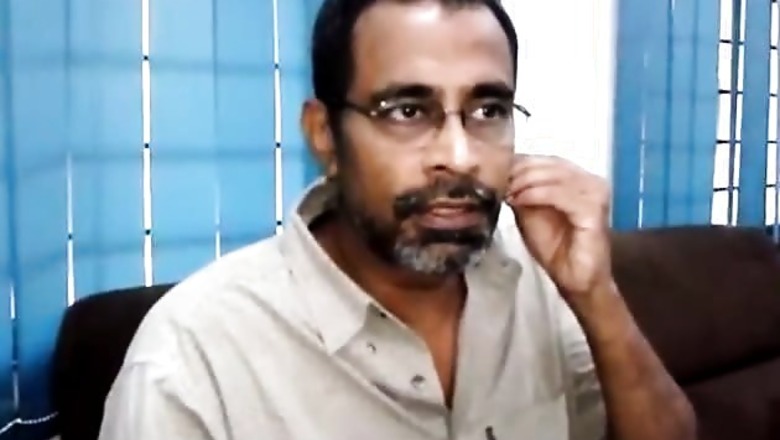
views
Director: RV Ramani
Towards the end of 'Hindustan Hamara', RV Ramani has a conversation with the subject of his 100-minute documentary film - veteran film-maker Anand Patwardhan. Ramani and Patwardhan are not just two different generations; they also represent two different forms of film-making. In their conversation, we get a glimpse of their distinct worldviews, which also shape up the form their respective films take.
Patwardhan represents film-making guided by political activism. He explains to Ramani that his interest in film-making did not come from interest in cinema, but from a need to express himself. His career reflects his political concerns. Starting in the seventies, over the years Patwardhan has made films on political prisoners (Prisoners of Conscience), Hindu fundamentalism (Ram Ke Naam), development (Bombay: Our City) and the history of dalit resistance (Jai Bhim Comrade), among others. Ramani, on the other hand, seems to be interested in the individual experience and in making the viewer experience what he does. Always conscious of the presence of the camera, he lets the audience formulate their own answers. This is perhaps also a generational shift in how the documentary is viewed.
Patwardhan began film-making in the context of the Emergency, when the urgency of protecting the right to expression was utmost. This has remained with him all his life. He says at one point, "Nothing has changed since the time I made and showed my first film..."
Hindustan Hamara had its world premiere at New Delhi's Persistence Resistance Film Festival. Ramani, who was present at the screening, explained that he has differences with Patwardhan over the form of his film-making. Obviously then, he has captured Patwardhan using his own style and form.
Ramani follows Patwardhan around at public screenings of his last film - the complex and dense 'Jai Bhim Comrade' (2012) - in Mumbai, and other cities. While Patwardhan remains with the people discussing his film, Ramani wanders to the sabziwalla being shooed away at the time of the screenings. "That's how public screenings are. I wanted to keep that", Ramani said at the Delhi screening. There are also scenes from Patwardhan's Prisoner's of Conscience (1978) and Bombay: Our City (1985).
Patwardhan is relentless as he moves from one public screening to another. At one moment, he is hugged by the mother of the poet whose suicide prompted him to make Jai Bhim Comrade, at another he is curiously asking an audience member details about caste discrimination. Jai Bhim Comrade was shot over 14 years, and was finally completed because a cultural group which features in the film - 'Kabir Kala Manch' - was forced to go underground by the State. That's when Patwardhan stopped filming and decided to release the film because he "wanted to create an atmosphere where Kabir Kala Manch could come over ground". There is something moving about the clarity which guides the film-maker.
Ramani's self consciously meandering style might give the impression that it doesn't take itself seriously. The film is neither a hero-making, nor critique. It just beautifully captures what film-making means to Patwardhan. We also see what becomes of a film after it is made - the repetition of the film being screened again and again, the film maker using the same songs (Cheeno Arab Hamara and Aasman Pe Hai Khuda) to introduce the film everywhere he goes. The filmmaker's idiosyncrasies, the sentences he repeats, his ideology and his doubts come across to you in a way that they are as much about Patwardhan, but also not just about him. The title 'Hindustan Hamara' which Ramani has thoughtfully translated as 'This country is ours' and not 'Our Country', is taken from the Sahir Ludhianvi written song which parodies the National Song. This translation is a nod to Patwardhan's film-making, for his films express the oppressed's stake over the Nation. It is also one of the two songs Patwardhan always plays during the screenings.
In the final conversation, there is an exchange, perhaps even a dialogue between the two film-makers. Patwardhan asks Ramani whether he doesn't know what he is making while he is filming. Ramani replies that while he does have an idea, but he is also open to it being changed during the course of the film. At this, Patwardhan says he would have wanted to do more of that too, especially with his family who had many oral history narratives. There is regret in his voice, and then Ramani steps in to placate him. "In a way you are doing that in all your films- reflecting on the values of your family." This is like a dialogue between forms, and the film ends the same day as this conversation.
As Hindustan Hamara ends, you feel you haven't just seen a film about Anand Patwardhan the person, but about filmmaking itself.










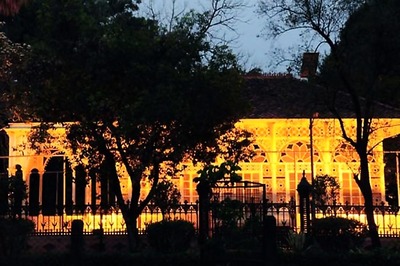




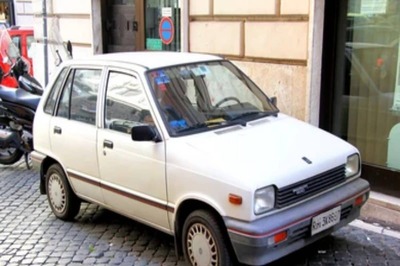
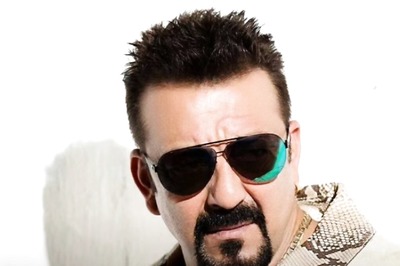
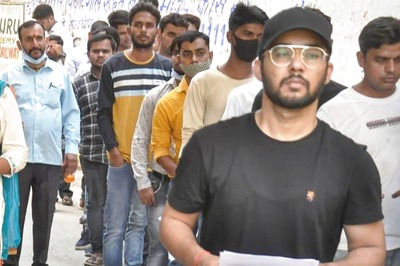
Comments
0 comment